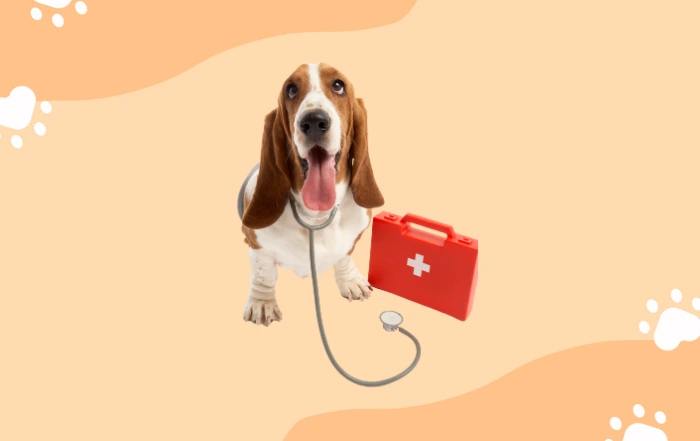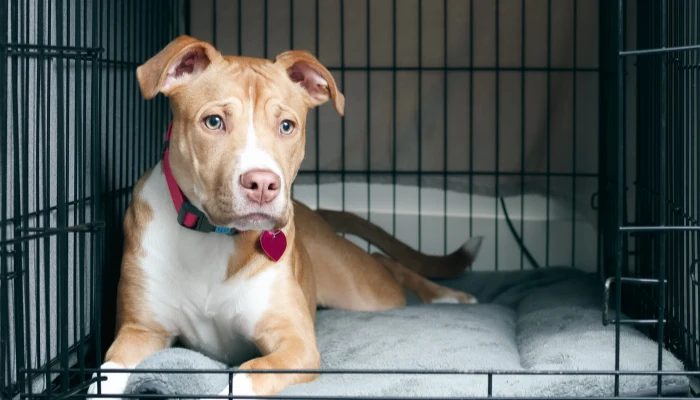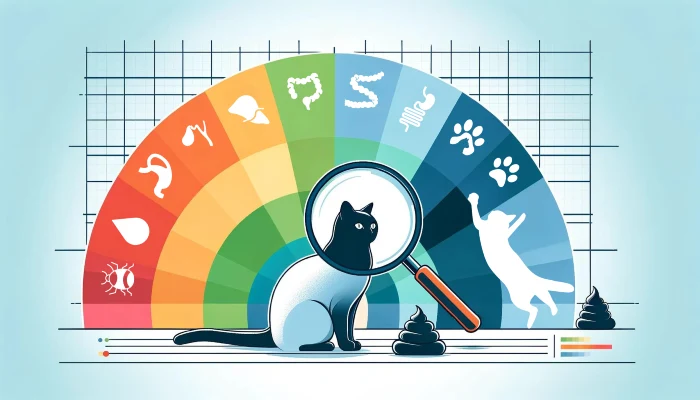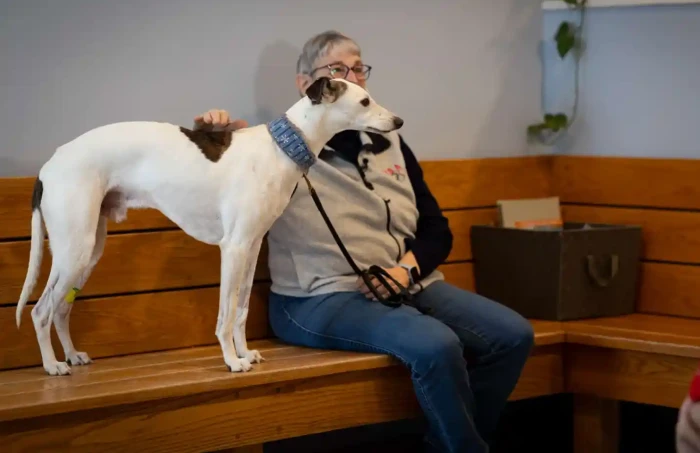As dog owners, our furry companions bring us immeasurable joy and unconditional love. But it’s also our responsibility to keep them safe and healthy. One crucial aspect of responsible pet ownership is knowing how to administer basic first aid to our dogs.
In this article, we’ll dive into essential techniques, common health issues to watch for, and what to include in a well-stocked Dog First Aid Kit. So grab a cup of tea, cuddle up with your pup, and let’s embark on this important journey together!
Dog First Aid Techniques You Should Know
CPR
Knowing how to perform cardiopulmonary resuscitation (CPR) can be a lifesaver in emergencies. Learn the correct technique, including chest compressions and rescue breaths, to help revive your dog if their breathing or heartbeat stops. Call your vet and ask if there is a pet CPR class available in your area or if they would be willing to show you how.
Wound Management
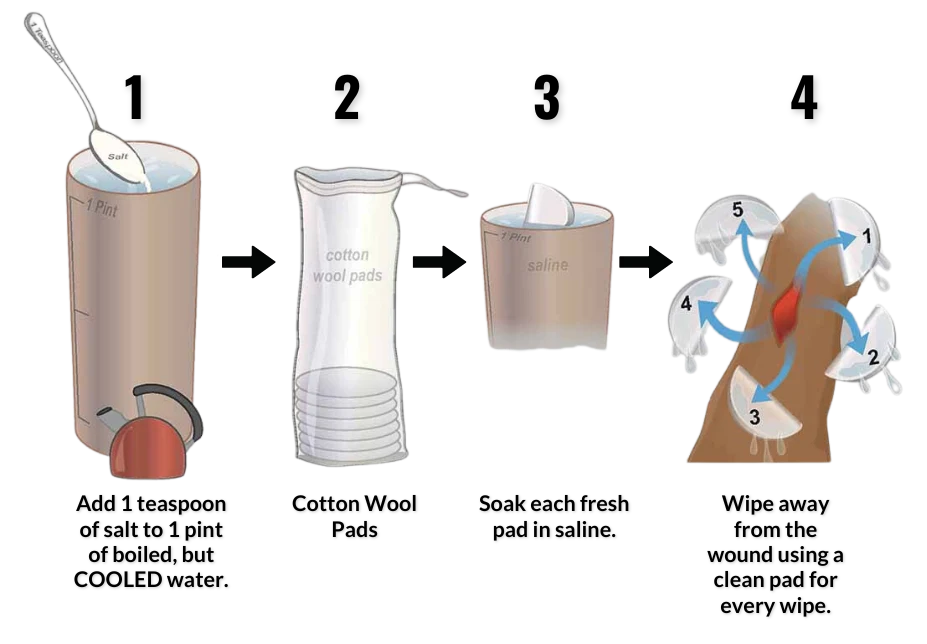
Understanding how to clean and dress wounds is crucial for controlling bleeding and preventing infection. Keep a calm demeanor and use a sterile saline solution or clean water to flush the wound before applying an appropriate bandage.
Splinting
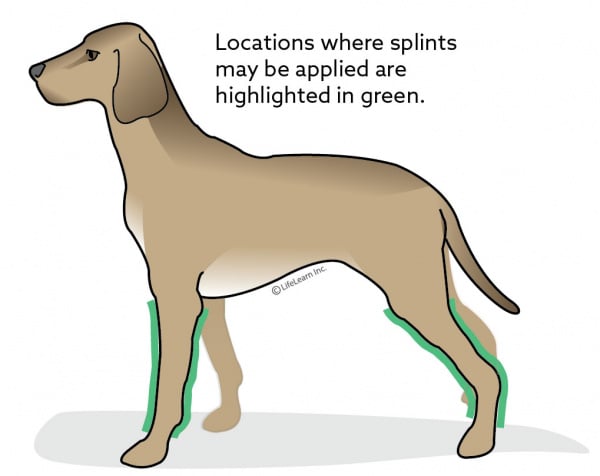
Accidents happen, and fractures or sprains may occur. Familiarize yourself with how to safely immobilize your dog’s injured limb using splints or improvised materials before seeking veterinary care.
Common Health Issues and How to Handle Them
Choking
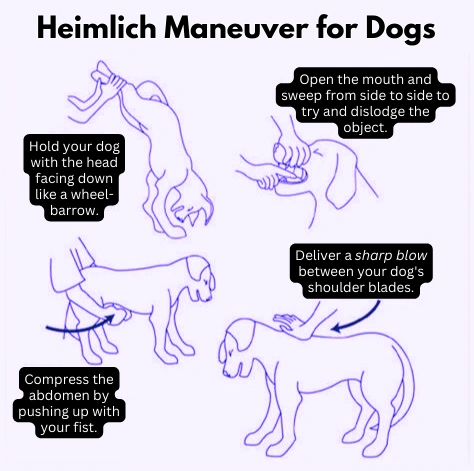
Dogs are curious and may swallow objects that can become lodged in their throat. If your dog is choking, try performing a modified Heimlich maneuver or back blows to dislodge the object. If unsuccessful, seek immediate veterinary help.
Heatstroke
Dogs can overheat quickly, especially in hot weather. If your dog shows signs of heatstroke such as excessive panting, drooling, or weakness, move them to a cool area, offer water, and use cool towels to bring their body temperature down. Seek veterinary assistance immediately.
Poisoning
Dogs can accidentally ingest toxic substances. If you suspect poisoning, it’s crucial to act quickly. If you cannot reach an emergency vet immediately, here are some steps you can take to help your dog:
Assess the Situation: If you suspect your dog has ingested something toxic, try to identify the substance or item. Look for any containers, packaging, or remnants of what they might have consumed. This information will be helpful for the veterinarian or poison control hotline.
Remove the Source: If the toxic substance is still accessible to your dog, remove it from their reach to prevent further ingestion. Be cautious and protect yourself as well, as some substances can be harmful to humans.
Contact Veterinary Poison Control: Call a veterinary poison control hotline immediately. These hotlines are staffed with professionals who can provide guidance based on the specific toxin your dog ingested. They will guide you on the next steps to take.
Inducing Vomiting: In some cases, inducing vomiting may be necessary to remove the toxin from your dog’s system. However, it’s crucial to do this only under professional guidance, as inducing vomiting can be dangerous in certain situations. Follow the instructions provided by the veterinarian or poison control hotline.
Activated Charcoal: If advised by a professional, administering activated charcoal can help prevent the absorption of toxins in your dog’s stomach. Activated charcoal binds to the toxic substance, reducing its impact on the body. However, it’s important to note that activated charcoal should only be given under professional guidance, as the dosage and administration method can vary based on the toxin involved.
Monitor Vital Signs: While awaiting professional assistance, keep a close eye on your dog’s vital signs. Watch for changes in breathing, heart rate, or behavior. If your dog shows severe symptoms such as seizures, difficulty breathing, or loss of consciousness, try to transport them to the nearest veterinary clinic as quickly and safely as possible.
Remember, time is of the essence in poisoning cases, and it’s always best to seek professional help as soon as possible. Veterinary professionals have the knowledge and resources to provide appropriate treatment tailored to your dog’s specific situation.
Note: It’s essential to familiarize yourself with the emergency veterinary clinics in your area before any potential emergencies occur. Keep their contact information readily available, as well as the contact details for the nearest 24-hour veterinary clinic.
By staying calm, taking swift action, and seeking professional guidance, you can help provide immediate care for your dog in a poisoning emergency. Remember, the well-being and safety of your furry friend should always be the top priority.
Dog First Aid Kit Essentials
A well-prepared Dog First Aid Kit can make all the difference in an emergency. The following is a list of items you should have in your kit.
- Gauze pads, bandages and bandage tape for wound dressing.
- Sterile saline solution or clean water for wound cleaning.
- Tweezers for removing splinters or ticks.
- Scissors to cut bandages or remove tangled fur.
- Disposable gloves for hygiene purposes.
- Digital rectal thermometer to monitor body temperature.
- Styptic powder to stop bleeding from minor cuts or nail trims.
- Antiseptic wipes or solution for wound cleaning.
- An appropriate sized muzzle or an old knee-high stocking to make into a muzzle.
- Emergency contact numbers for your veterinarian, animal poison control, and nearest 24-hour veterinary clinic.
As responsible dog owners, it’s essential to be prepared for unexpected situations and equip ourselves with the knowledge and tools to administer basic first aid to our furry friends.
From CPR to wound management, understanding these techniques can be crucial in times of need. Remember to be calm, assess the situation, and prioritize your dog’s safety while seeking professional veterinary care when necessary.
More To Discover
- Pioneering Anti-Aging Pill for Dogs Begins Trials, with 11-Year-Old Whippet Boo Leading the Pack
- Protecting Your Dog: Key Vaccines, Their Importance, and Average Costs
- The Importance of Your Pet’s Dental Health: More Than Just a Winning Smile
- South Korea’s Pivotal Move to Ban Eating Dogs: A Reflection of Changing Times and Attitudes
So, next time you’re enjoying a sunny day at the park with your pup, take a moment to appreciate the importance of Dog First Aid.
You never know when you might need to spring into action to protect man’s best friend.
Stay prepared, stay informed, and continue to provide the best care for your beloved dog.
Remember, a little knowledge and a lot of love can go a long way in keeping our four-legged friends safe and happy on their adventures by our side.








